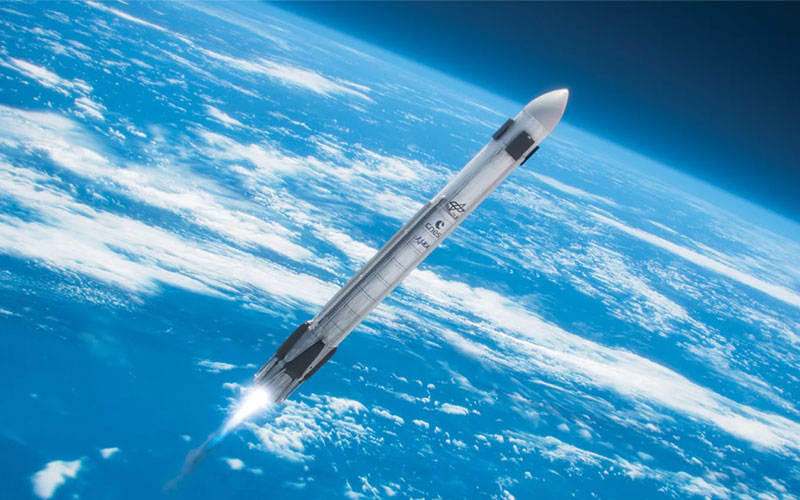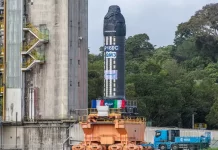
The French space agency CNES has revealed that the inaugural test flight of its Callisto reusable rocket demonstrator will not take place until late 2025 or early 2026.
Conceived in 2015, the Cooperative Action Leading to Launcher Innovation in Stage Toss-back Operations (Callisto) project is a joint effort between CNES, DLR, and JAXA that aims to mature reusable rocket technologies for use aboard future launch vehicles.
Callisto will stand at 14 metres tall, with a diameter of 1.1 metres and a lift-off mass of four tonnes. The demonstrator rocket will be powered by the Reusable Sound Rocket (RSR2) engine, which will be supplied by JAXA. The RSR2 engine has deep-throttling capabilities in the range of 16 to 45 kilonewtons.
In a paper presented at the IEEE Conference on Aerospace earlier this year, representatives from DLR revealed that the project’s critical design review had been completed successfully in November 2023 at the agency’s facilities in Bremen. The paper went on to explain that the procurement of “some flight hardware” had already started. There was, however, no mention of an expected launch date for an inaugural flight.
Earlier this month, CNES deployed a refreshed website. Prior to that deployment, the agency’s Callisto project page had stated that the rocket’s first flight would occur in 2024. The new Callisto project page has a more detailed timeline, stating that the detailed design phase will be completed by the end of 2024. Vehicle integration in Japan is then expected in 2025, followed by a first launch from the Guiana Space Centre between 2025 and 2026. This revision outlines an approximate two-year slip in the project’s timeline.




